Engage students with interesting research topics, teach them skills to become adept independent researchers, and help them craft their end-of-unit research papers.
CommonLit 360 is a comprehensive ELA curriculum for grades 6-12. Our standards-aligned units are highly engaging and develop core reading and writing skills.
Want to engage students in independent research? Looking to hook students with interesting research questions and informational texts? CommonLit has your back.
CommonLit’s 360 curriculum provides research units for grades 6-10 that will help students complete independent research and craft evidence-based research papers.
Get students excited about their research with Essential Questions designed around timely topics
Each research unit has an Essential Question that students analyze and discuss throughout the unit. The topics for each research unit are designed to be interesting, timely, and relevant to students’ lives.
Students will learn about the status of the world’s oceans, discuss if social media is beneficial or risky, argue if contact sports are worth the risk, research how branding influences purchasing behavior, and learn about the human costs of clothing.
Here are the research units and their Essential Questions:
Get students excited about the research topic with introductory slide decks
Each unit comes with introductory slide decks that preview what students will be learning about over the course of the unit. The slide decks spark classroom discussion, hooking students from the very first lesson.
In Our Changing Oceans (6th grade), students discuss what it would be like to be an oceanographer, preview the texts they will be reading about issues facing our oceans, and hear about the key skills they will be learning throughout the unit.
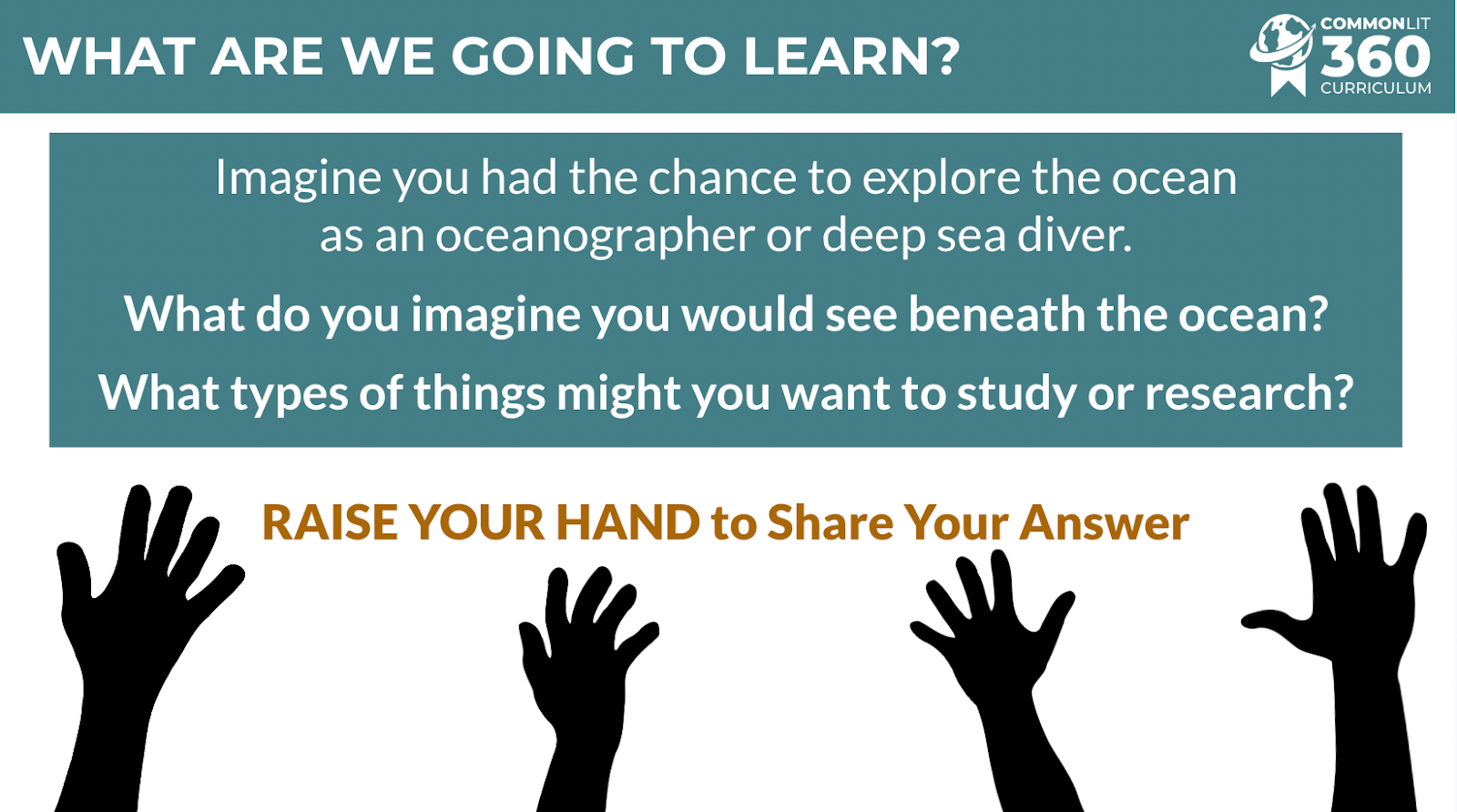
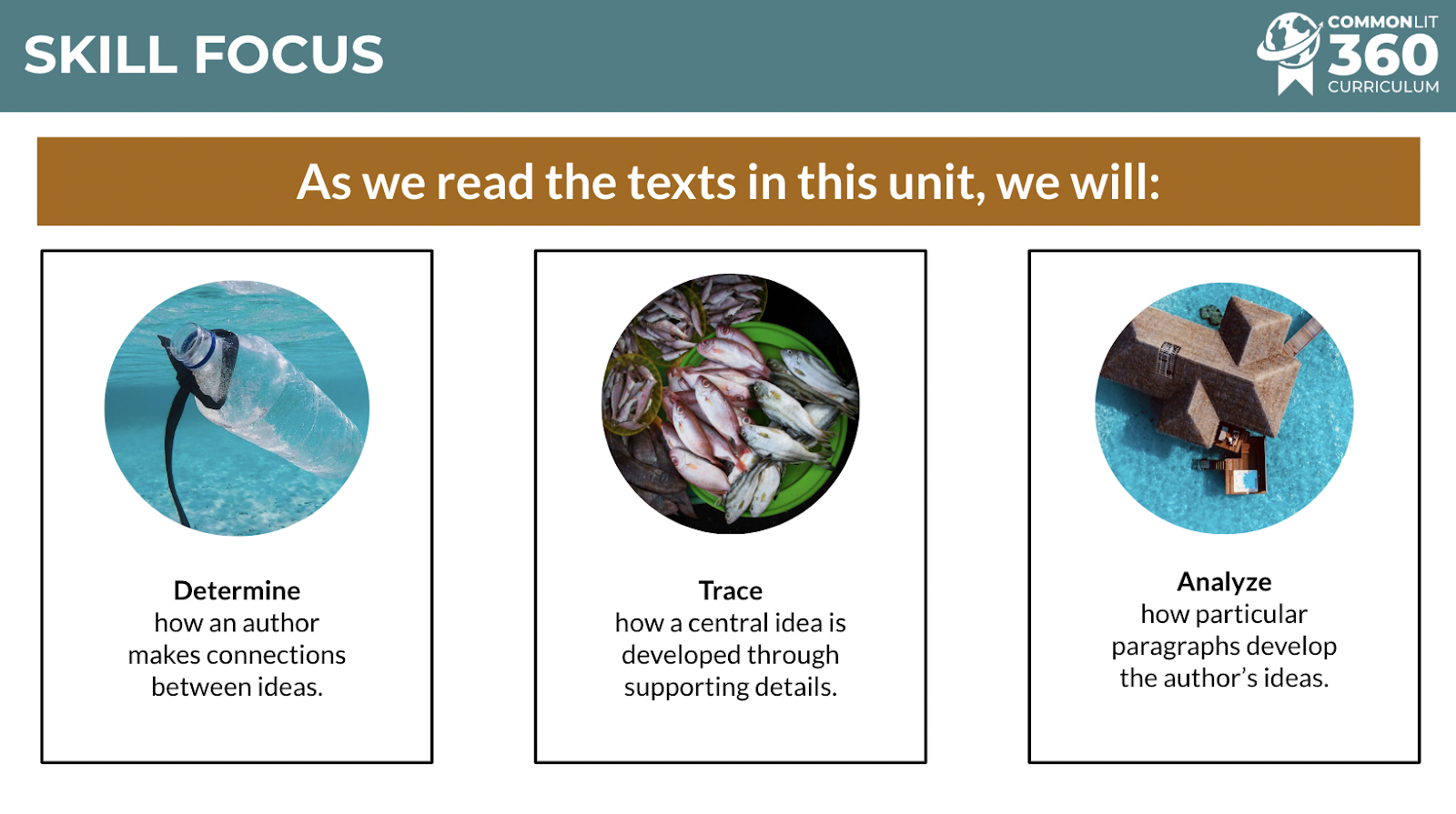
Informational texts anchor each research unit
CommonLit’s research units are centered around informational texts that provide students with key background information and research to eventually support their end-of-unit essay.
Four core texts make up the Essential Reading Lessons for 6th grade. These texts teach students about the need to protect Antarctica and how plastic debris, sea level rise, and overfishing are affecting the world’s oceans. These texts teach students important facts they will need to cite in their end-of-unit research papers.
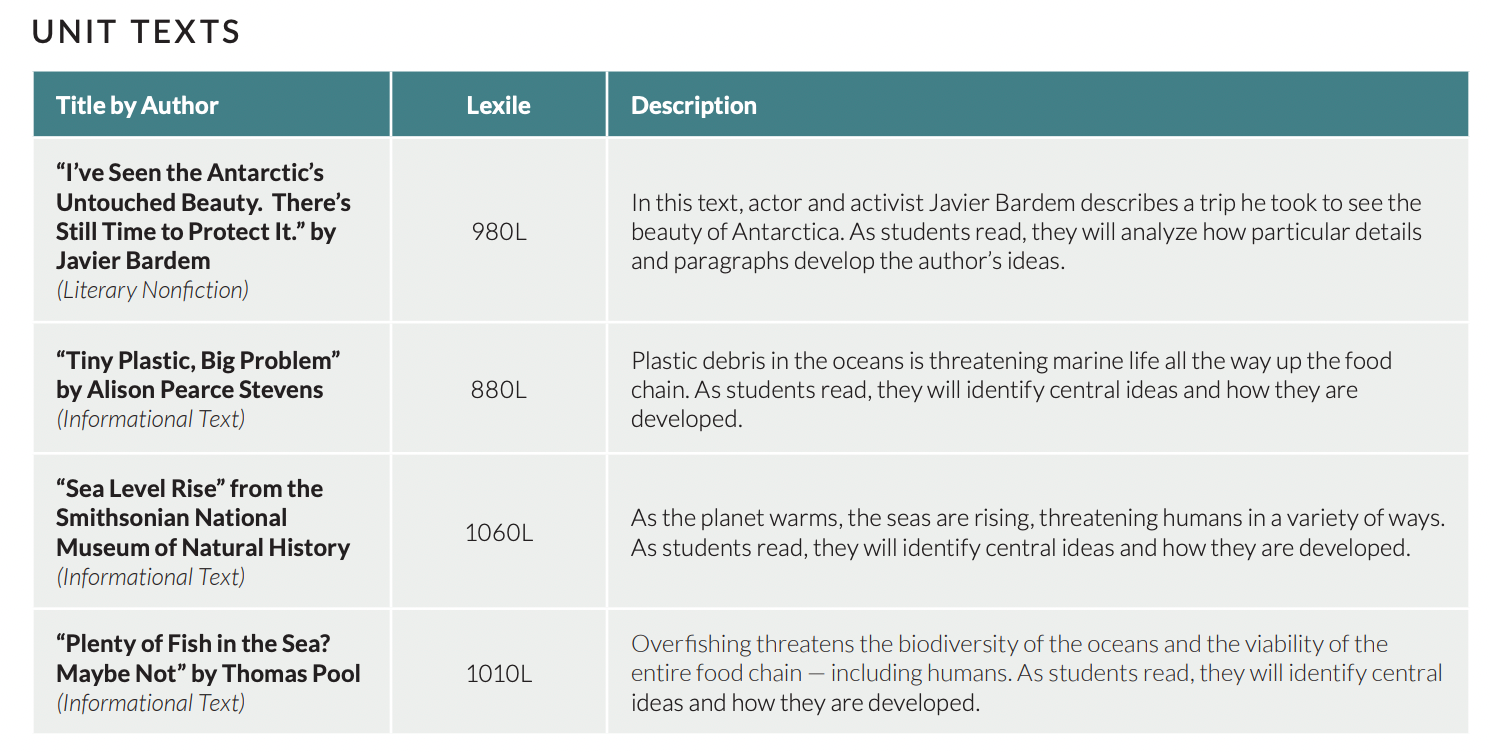
Supplemental texts allow students to dig deeply into independent research
Each unit comes with a large selection of supplemental texts to provide students with more facts and information to use in their research paper.
In middle school, students use the provided supplemental texts to further inform their research. In high school, students learn about finding reliable sources and can use both provided supplemental texts on CommonLit and texts from additional sources in their research.
For example, in Our Changing Oceans, 6th graders choose to research one of three topics related to ocean changes.
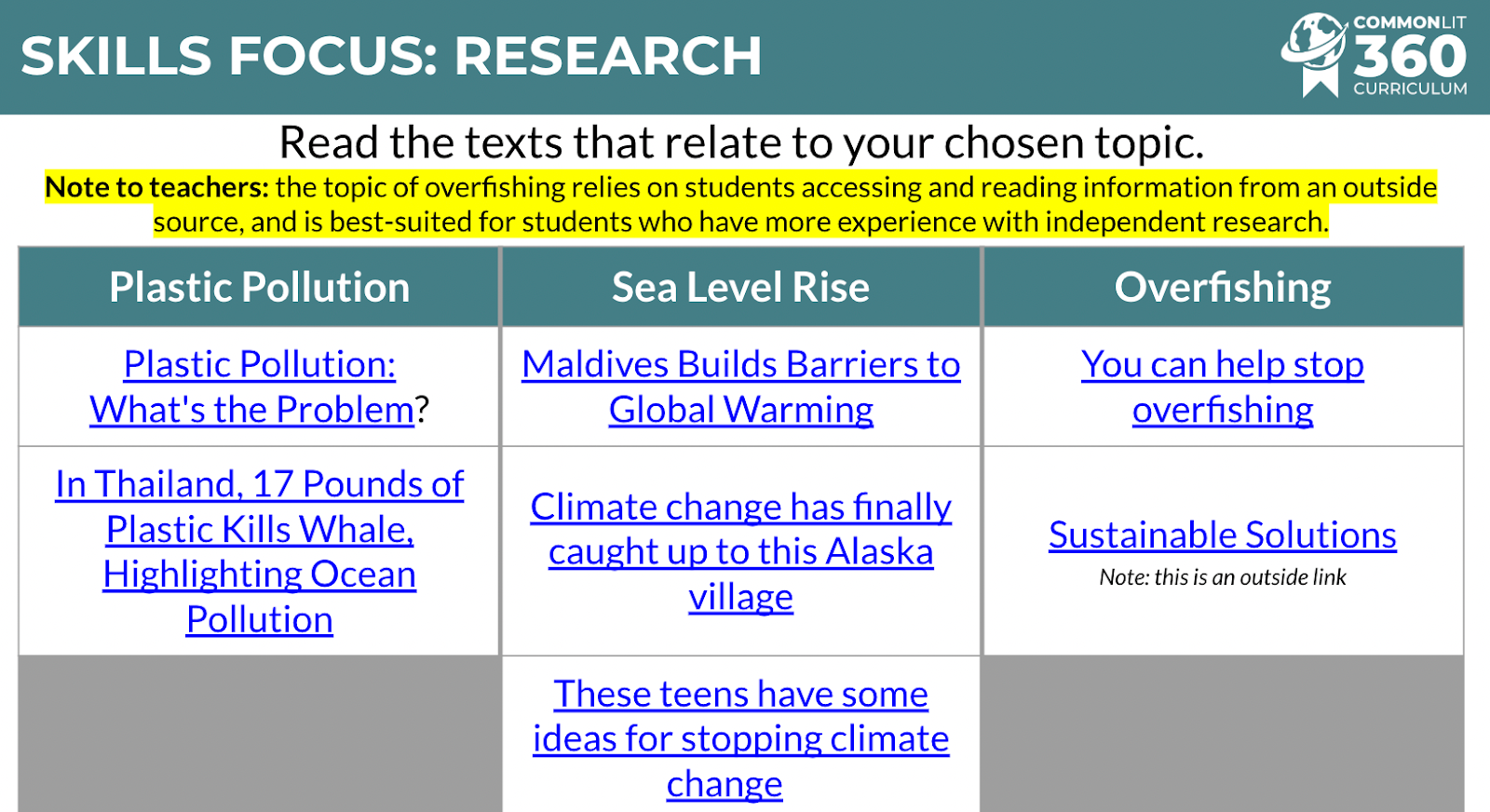
In high school, students are taught about the beginning of the research process, including developing a research question, finding reliable sources, and reading and taking notes. Students in 9th and 10th grade can use the supplemental texts as well as texts found in books or on other online learning platforms.
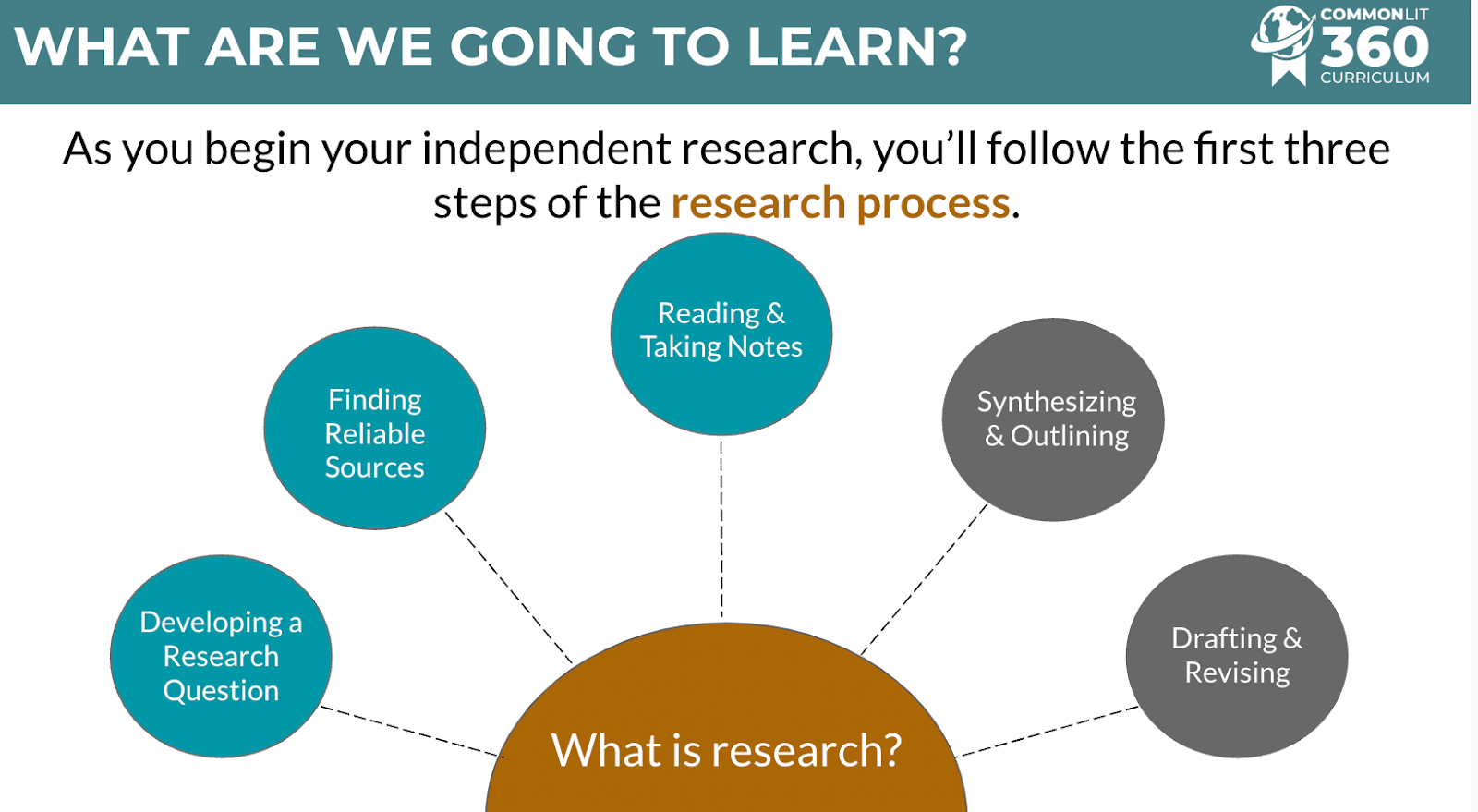
Students learn about the research process and how to craft research papers throughout the unit
Each unit includes lessons about conducting research so students can be prepared for the end-of-unit research paper. Scaffolded supports help students move through the research process. In lower grades, certain steps in the process, like developing a research question and finding reliable sources, are provided for students.
Students learn about writing research papers during writing lessons. In 8th Grade, students learn how to discuss and outline research papers. Then, they learn how to write a counterclaim, format a Works Cited page, and use in-text citations properly. Each of these research-paper focused writing lessons will prepare students to answer the end-of-unit essay.

Students also explore how to conduct independent research in research-specific lessons. In 8th Grade, teachers explain that they have provided the first two steps of the research process for students: developing a research question and finding reliable sources.
In the lesson, students are taught how to use a graphic organizer to take notes on each text they read in preparation for their research paper. Students also engage in an Introduction to Independent Research lesson, where they learn about steps of the research process and begin reading and taking notes on supplemental texts. Later, students engage in a discussion lesson that will help them synthesize all the information they have learned throughout the unit by discussing the research question with classmates.
Related Media Explorations provide even more background information for students
Related Media Explorations are a unique cornerstone of our ELA curriculum. These interactive tasks bring our research units to life and provide background information for students to use in their research.
In 8th Grade, students learn about the way football culture has changed over the past few decades as scientists learn more about the long-term effects of repeated concussions. Students watch three videos that explain the culture of football in the past and present, and analyze statistics about concussions before discussing the question: “Who is most responsible for shaping mindsets about tackling in football: players, coaches, parents, or fans?”
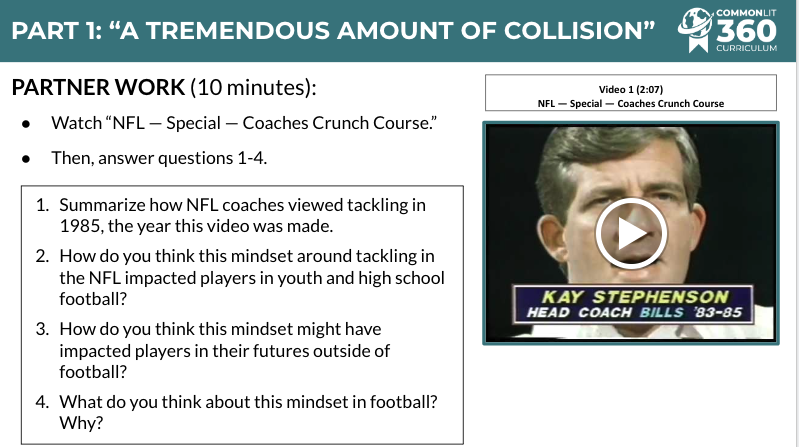
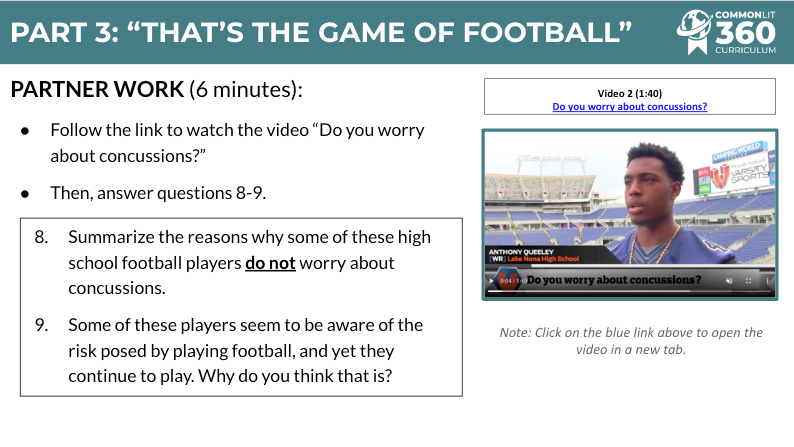
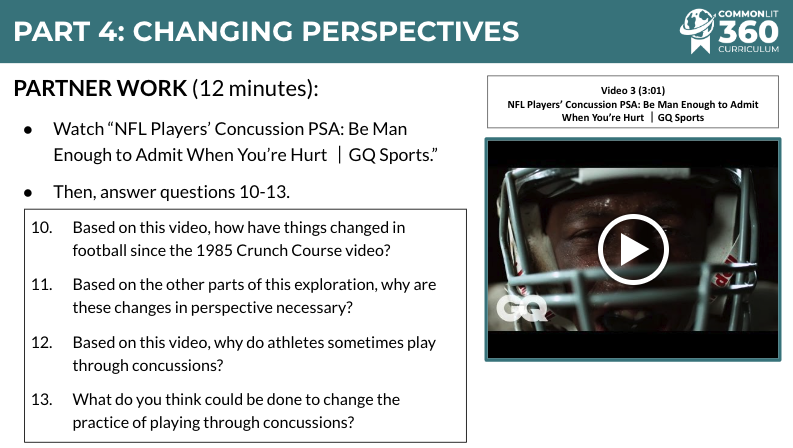
Discussion lessons help students synthesize information in preparation for their research paper
Discussion lessons in each research unit provide students with the opportunity to practice citing evidence from sources, explain their evidence to classmates, and practice synthesizing information. These conversations give students the chance to gain new perspectives, receive feedback on their ideas, and boost their confidence before delving into the research paper.
In 8th Grade, students synthesize their ideas about the research question through a class discussion. After the discussion, students have an opportunity to outline their research paper using both their discussion notes and the note-taking graphic organizer they have used throughout the unit.
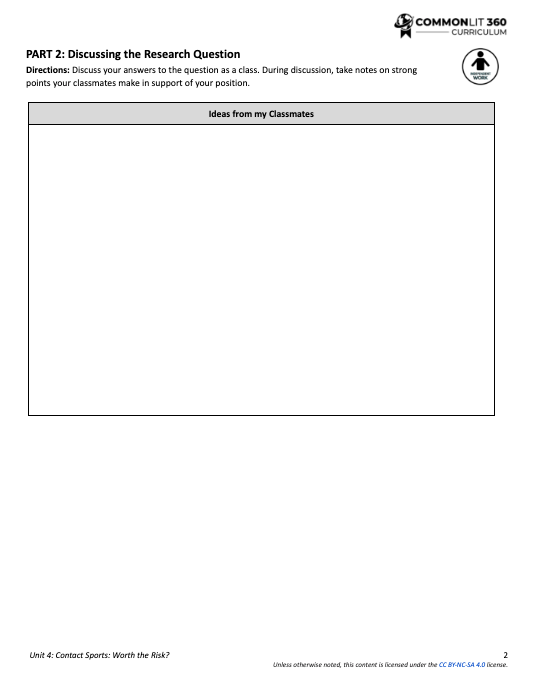
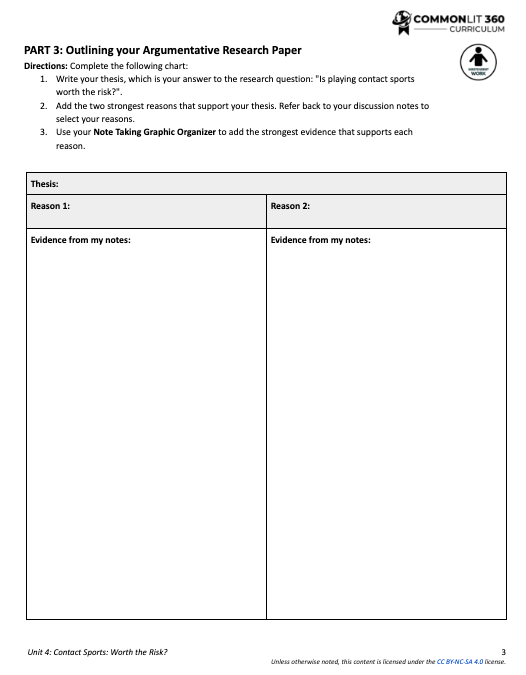
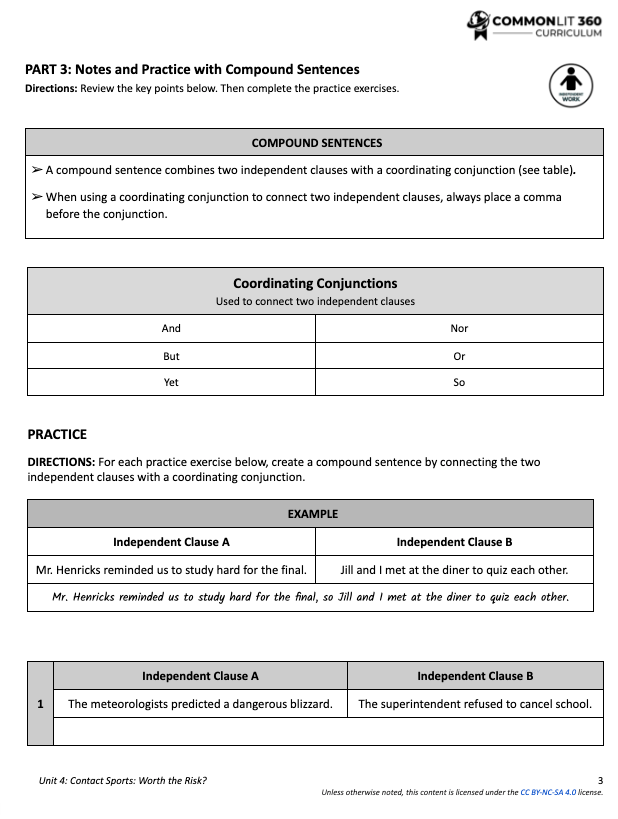
Participate in an optional final project that fosters creative thinking and collaboration
Each research unit comes with an optional end-of-unit project to further engage students through project based learning. These optional projects help foster student creativity and collaboration. Students can work with a partner or group to complete the task.
In 8th grade, students must make a brochure providing prospective parents and student athletes with factual information about the benefits and risks about contact sports so families can make an informed decision about participating. Students must work with a peer with an opposing view on the topic so the brochure is factual and unbiased. This task encourages teamwork and collaboration between peers with differing views.
Vocabulary and grammar lessons build student comprehension and writing skills
Each 360 unit comes with vocabulary and grammar lessons. Vocabulary activities help students internalize high-impact academic vocabulary words they will see in the texts they are reading. Grammar activities help students improve their writing skills, teaching students valuable skills to construct carefully crafted, grammatically correct paragraphs.
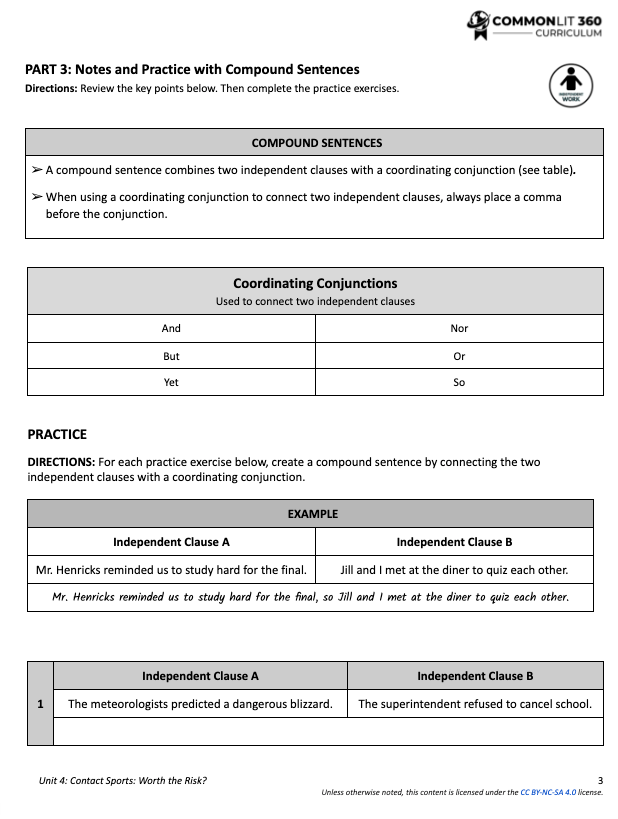
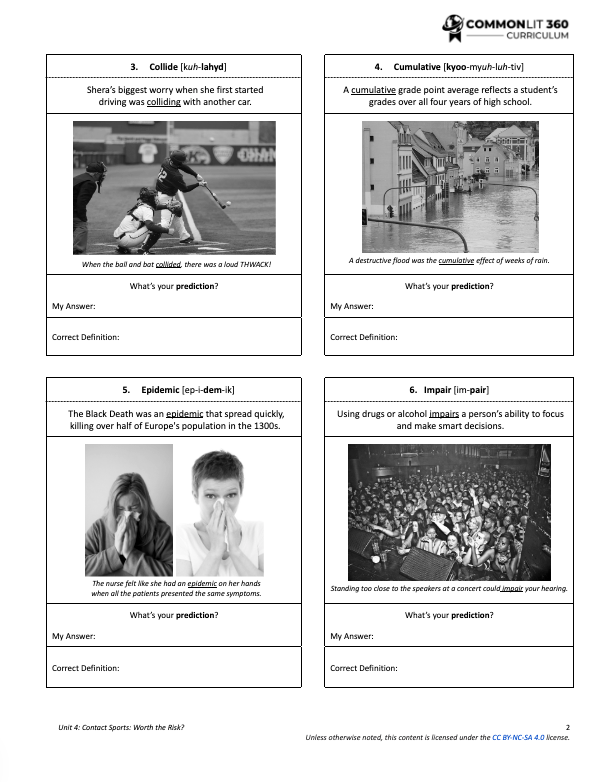
Next Steps
Want to learn more about research units and CommonLit 360? Register for a free, 30-minute webinar today!
Interested in learning about our affordable support packages? For just $6,500 per school, School Essentials PRO Plus provides teachers with three benchmark assessments, two unit skill assessments per 360 unit, personalized professional development, school-wide data reports, LMS integrations, and more.
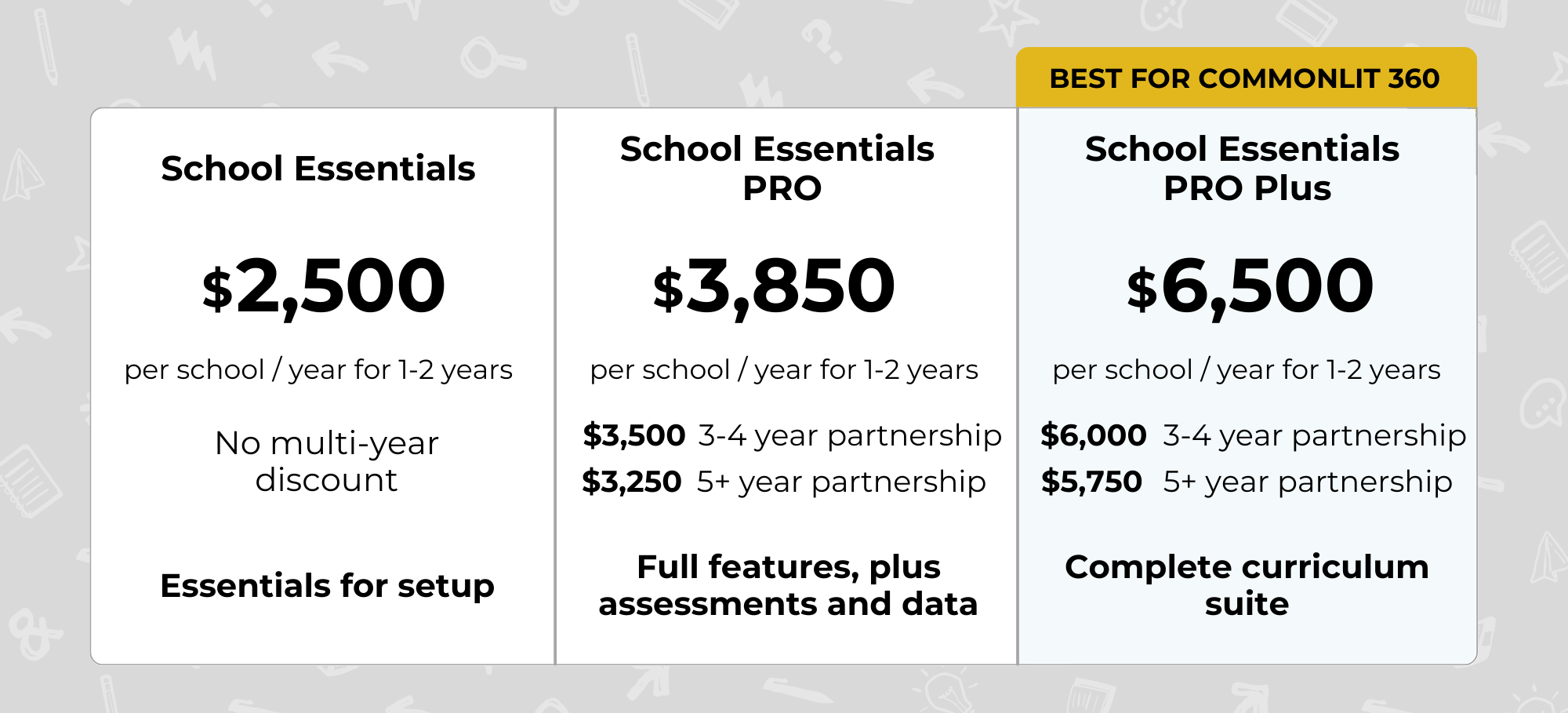
We are eager to support your team!


